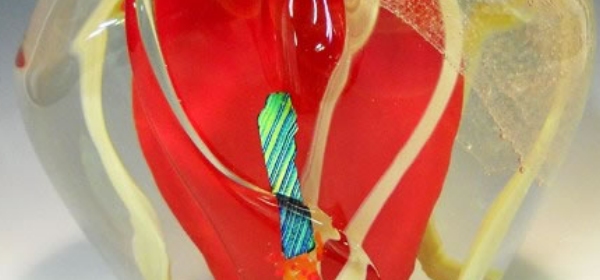Master Advice From Glass Artist Vernon Brejcha
For as long as you can remember, people have been saying how talented you are and that you should be an artist. But where do you start and how do you know if you have what it takes?
Regardless of where you are in your career, there is always an opportunity to learn something new. As recognized leaders in our creative community, we’ve asked the artists in Kansas Masters to share what they’ve learned along the way, including what the word “master” means to them.
Hopefully, through their wisdom, you’ll feel a push in the right direction, or at least the inspiration you need to keep going and keep seeking.
Vernon Brejcha says:
To me a master is someone who has put in years improving their skills and continues to do so throughout their working career. I see too much today called "art" that anyone could do. I remember years ago someone saying to an artist, "I'd give my life to have your abilities," to which he answered, "I did."
Practical and philosophical advice? That’s a tough one. When I had students for four or more years and saw where they were in development it was possible to give some of this advice. Myself, I was stubborn and rejected a lot of advice because most of the time I knew what I wanted my art to say and where I wanted it to go. What to avoid or getting on the right is about making mistakes and learning from them. Being a loner in my own dream world networking has always been a bit of a mystery. Again I did pass on to students what I observed other artists doing. Keep searching your own heart and soul. Keep pushing your skills and ideas. Trying to go along with trends will forever keep you trying to catch up. Safe art is like a slick wire fence. It's the barbs that get attention.
The small town schools I went to had no art programs. I'm thankful for that because nobody tried to tell me what art was. I saw that happen to my own children.
Thankfully out of three universities and ten years of formal art education I did have two professors (artists) who spoke intelligently about art, life and respected their students’ aesthetics and vision. They also gave advice about the art world of galleries, publicity, and self support. Important information but again knowing an individual’s personality and goals depends on how the advice should be given.
Come see Brejcha's glass sculptures at Kansas Masters, which runs September 2 through October 21 at the Sabatini Gallery.













